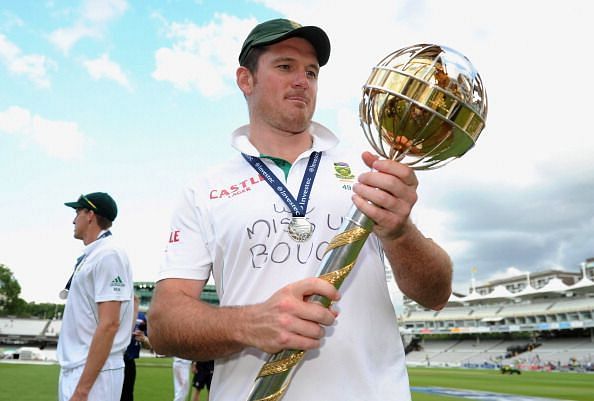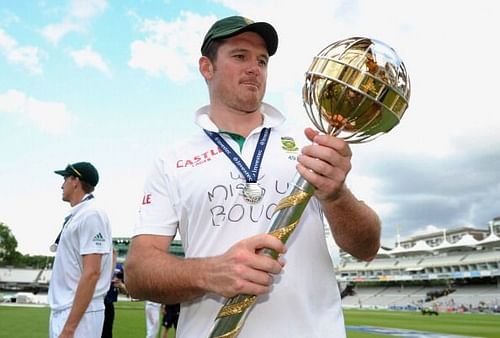
Move over T20s, Tests are the way going ahead, says Smith

What's the story?
Only a few weeks after the England Cricket Board proposed "The 100" to attract a new demographic of audience to the sport and Brendon McCullum talked about the futility of Test cricket in the age of the hit and giggle cricket, that is Twenty20, former South African opener Graeme Smith has strongly supported the case for survival of the oldest form of the game.
He also stated the importance to retain the originality of each format and a few suggestions that will help the sustenance of the sport in the long run. Smith's words come in handy at a time where despite the abundance of Test stars, the format as a whole seems to be struggling to garner the number of eyeballs it requires to remain viable in the longer run.
In case you didn't know
At the age of 22, Smith was appointed as the youngest South African test captain. In a career stretching over twelve years, he led his country in a record 109 test matches, winning an astounding 53 of those.
The heart of the matter
Smith came up with the radical, yet sound idea of getting rid of T20s at the international level. "Maybe the ICC needs to look at six months of T20 cricket domestically and six months of international cricket," Smith said at an event in Mumbai, according to Hindustan Times.
"I don't think T20 cricket should be played at the international level. My opinion is to retain domestic T20 competitions and have international cricket - Test and ODIs - and have a World Cup every couple of years," thus he emphasized on having more and more matches with consequential outcomes.
"There needs to be investment," he said. "Maybe spend more money marketing Test cricket. So much money is spent in marketing the T20 format. Maybe there can be money marketing the stories and histories in Test cricket." Smith urged the cricket boards to take the initiatives that will nudge the sport and its associations in the right direction.
Smith cited the example of former team-mate and recently retired legend of the game, AB de Villiers, to explain the toll of excessive cricket on the players, and hence the need to regulate and prioritize well. "There are not many players who have played for 14-15 years that can travel nine, 10, 11 months a year, deal with the pressures, plus the family pressures, it's very, very difficult," he said, according to Reuters. "The guy has played international cricket for around 15 years."
What's next?
Over the last couple of years, with consistent involvement from the MCC, the ICC finally came up with a strictly defined structure for Test Cricket and ODIs. To eradicate the criticism of having many meaningless bilateral Test series, ICC introduced the Test Championship, which gets the top four teams to compete against each other at the end of every defined three-year cycle. Thus, every test, even dead rubbers from a series context, acquire relevance in the long run.
The increasing number of day/night tests will also draw in more spectators for many reasons, the sheer novelty of the concept, favourable weather conditions, and the new set of strategies and tactics associated with the slightly varied behaviour of the pink ball.
Do you agree with what the South African legend has to say? Have your say in the comments section: